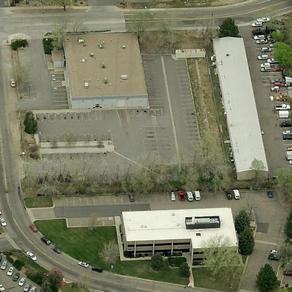"It's your land, you should be able to do what you want with it"
- DENVER YIMBYs for GOOD
- Jul 12, 2022
- 3 min read
Updated: Jul 19, 2022
Today we talked with a neighbor where we were discussing adding ADUs and density to our neighborhood. He and his wife are from Texas, and his response to being able to build ADUs in backyards was: "It's your land, you should be able to do what you want with it."
Of course, this was said right after he said how he liked how nice and quiet it was here.

Why are ADUs and density a problem in our Park Hill neighborhood?
1. Flooding: Our neighborhoods were not built to have every inch of soil covered up with housing – it was not planned to be this way. Now, when we have heavy rains and the gutters and sewers start to overflow with excess water, houses in lower areas in our neighborhood flood. This will continue to get worse as more and more "backyard homes" (ADUs) and McMansions get built over more permeable ground. Unlike new developments, which are typically required to build water catching areas ("parks") to catch heavy runoff water in case of heavy rains, our neighborhoods were designed to have a lot of permeable ground, which reduces the chance of homes flooding. When we build on every square inch of our land, this causes a substantial increase of water runoff, causing flooding in nearby basements. Unfortunately, in Park Hill and other Denver neighborhoods, there is no land to be repurposed to catch heavy rainwater when it comes as we cover more and more permeable ground and remove vegetation.
Flood prevention methods include planting vegetation to retain excess water, terrace slopes to reduce slope flow, and building channels to divert water from flooding, and dams, reservoirs or holding areas to store extra water during flood periods. When we recklessly allow ADUs and density buildings to cover more permeable ground in our neighborhoods, there is no way to offset the additional runoff that is caused by more buildings. Why are Denver's city planners not taking this into account when issuing permits for buildings to cover more permeable ground?
2. Parking: When you build ADUs and add density to neighborhoods, parking quickly becomes a problem. Most people have to have cars in Denver as our public transportation is very limited (for example, there is no inexpensive public transportation to the mountains!) We need to improve our public transportation options and make it affordable (or free) in order to encourage people to go without a car.
3. Property taxes: Taxes go up if every property continues to build McMansions or backyard houses around you. This becomes unaffordable over time for lower-income people living in our neighborhood.

4. Sunlight: You and your neighbors should have the right to sunlight. You paid for a home with sunlight. If your neighbor decides to pop the top, or scrape or build an "addition" onto their home, it shouldn't be allowed to block your sunlight. It's terrible seeing peoples homes, gardens, and solar panels getting blocked by a neighboring development! Why is this legal? There should be laws in place that protect your sunlight for your home and garden, unless you grant permission to build into it.
5. Heat Islands from ADUs: When you have more structures such as ADUs in neighborhoods, they absorb and re-emit the sun’s heat more than natural landscapes with trees and green spaces. ADUs being added to Denver backyards create more heat islands in our city, resulting in higher temperatures, more air-conditioning use, and less room for green spaces and trees. With recent record breaking high-temperatures in Denver, it's a big problem if we keep covering our landscapes with more buildings. Extreme heat events—which are becoming increasingly common in cities across the country–have the greatest impact in places with more roofs and concrete and less green space. ADUs do just that, they reduce our green space substantially and replace backyard landscapes with structures that radiate heat back into our neighborhoods. ADUs are also likely to be equipped with more energy-guzzling air conditioning units that funnel heat outside, exacerbating the so-called “urban heat island” effect, making our city even hotter. The more we remove green space from Denver to add buildings such as ADUs, the hotter our city gets, and more AC units will be used by residents to stay cool. The irony is that hotter temperatures lead to more air conditioning, and more air conditioning leads to hotter temperatures!
"It's your land, you should be able to do what you want with it."
We disagree, there should be limits to protect those around you, you shouldn't be able to build a building that could potentially flood your neighbors' homes, steal their sunlight, contribute further to the heat island effect, or eliminate available street parking.








Comments